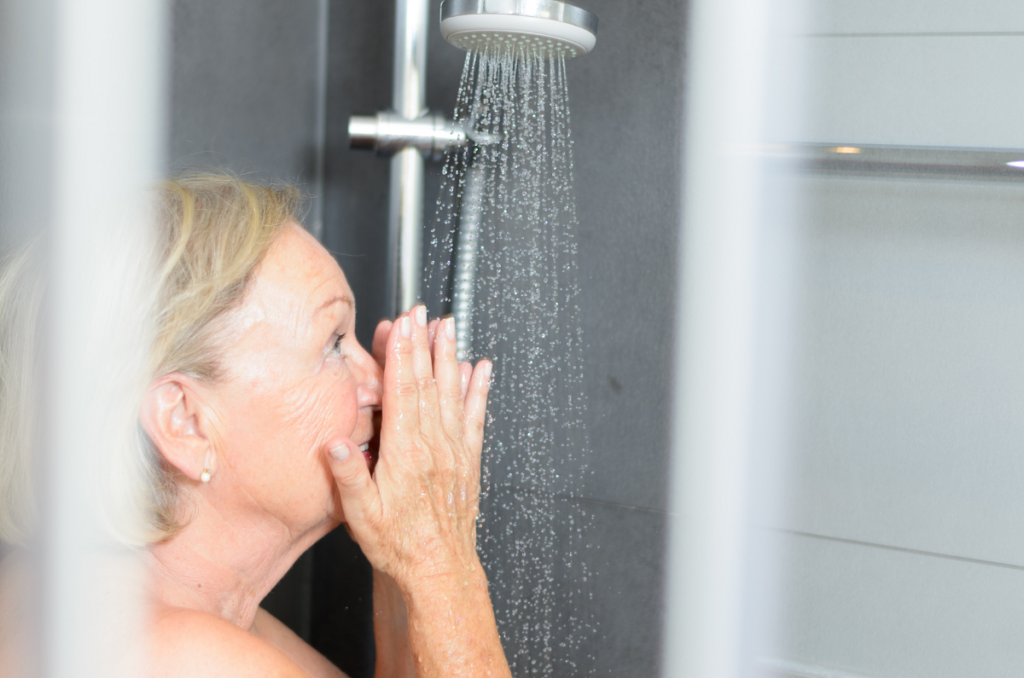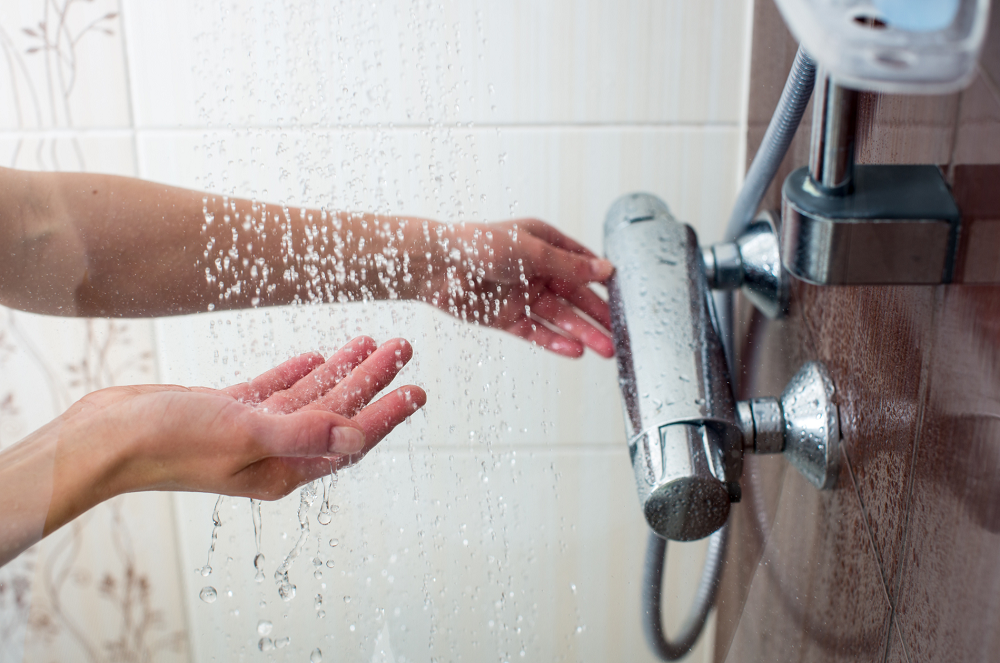Warm Water Safety for the Elderly and Disabled Adults

The bathroom is one of the most dangerous places in the house for older adults and people with disabilities. Accidents like falls and slips can happen at any point. However, there’s another danger caregivers should be aware of: scalding water.
When older people aren’t in full control of their faculties or their bodies, it becomes easy for them not to realize that they are using water that is too hot to be safe, until it’s too late. This mistake can lead to serious damage to their skin.
In today’s guide, we’ll give you some useful tips for safe showers for seniors and people with mobility problems.
What Is the Ideal Shower Temperature for Older Adults?
The ideal shower temperature for elderly people and people with disabilities ranges between 95°F and 105°F. Adhering to this temperature range will ensure comfort and safety while showering or bathing, as it can minimize the risk of scalding or skin irritation.
It is imperative to keep the water temperature for bathing controlled at all times, especially for people with sensitive skin or other medical conditions. As for caregivers, they should communicate with their charges to determine the best temperature for comfort.
An additional risk caregivers should be aware of is sensory impairment. Some older adults have reduced sensibility to temperature, meaning they might not sense at first when the water is scalding hot.
How Serious Is Hot Water Damage?
Hot water can cause serious damage and should be taken very seriously as a threat to health and safety. Even in a highly supervised environment, accidental hot water exposure can lead to serious damage for older adults and people with disabilities, causing injuries that would never fully heal.
Water Safety Tips for Older Adults

Taking a shower should be a relaxing and refreshing experience, but for seniors and people with disabilities it can be a risk. Luckily, we’ve put together some of the best tips to make showers and baths safer for everyone.
Here are some of the best senior-safe shower water tips:
Ask for Water Preferences Before Shower Time
A shower or bath should be relaxing for everyone. Older adults and people with disabilities have preferences for comfort, so it’s important to create good communication between caregivers and carers.
While extremely hot water does present some danger, that shouldn’t stop anyone who prefers hotter temperatures from being able to enjoy their shower or bath the way they like it, as long as exposure to high temperatures doesn’t affect any medical conditions they might have.
Adjust the Water Heater’s Thermostat
The best way to prevent scalding is to adjust the water heater’s thermostat to the desired temperature. This one action will keep the water that comes out of a faucet or shower head from becoming too hot for the skin of a senior.
Ideally, hot water should be within a few degrees of normal body temperature (about 97 or 98 degrees). When hot water comes out of the faucet, it will often be hotter than this, but will eventually cool through exposure to the air.
Water becomes scalding (able to cause burns) around 140 degrees Fahrenheit (60 degrees Celsius); at this temperature, it is able to cause serious damage to skin, muscle, and (if exposure is prolonged), even bone in a relatively short amount of time.
Monitor Your Loved One’s Bathing
Even if you have all safety measures in place, the most important step you can take is to constantly monitor your loved one. This doesn’t have to mean you sit in the bathroom with them while they do their business; what it does mean is that it’s important to check the water temperature before they enter.
You should also pay attention to how long they are in the bathroom, and listen for any noises that might indicate trouble. If your loved one requires constant supervision, we recommend not leaving them alone at any point.
Use a Water Thermometer or Thermostatic Mixing Valves
If safety is your primary concern, investing in additional hardware can make the shower process safer for your loved ones. For instance, water thermometers are specifically designed for measuring bath water temperature for elderly people. This incredible tool provides accurate reading, helping you adjust the warmth when needed.
Another product you could invest in is a thermostatic mixing valve for showers. It regulates water temperature automatically while reducing the risk of sudden heat fluctuations. Mixing valves are the perfect idea for people who don’t need constant help and supervision when showering.
Additional Tips for Shower Safety for Elderly Individuals and People with Disabilities
There is plenty you can do to make your bathrooms safer and more accessible for older adults and people with disabilities. What we recommend is following the Americans with Disabilities Act guidelines, which includes the following:
Install Grab Bars and Non-Slip Mats
Grab bars are safety features designed to provide support and stability when entering, exiting, or moving around in the shower. They should be strategically placed in areas where slipping or falling is most likely; for instance, on shower walls.
Additionally, non-slip mats or adhesive strips on the shower floor further reduce the risk of falls by providing traction and preventing slips on wet surfaces.
Add a Shower Chair or Bench
For individuals with limited mobility or balance issues, using a shower chair or bench can significantly enhance safety and comfort during bathing. They also help reduce the strain on caregivers, making their job easier.
Install a Handheld Showerhead
Another solution is to install handheld showerheads. They can be easily adjusted and directed to target specific areas of the body, allowing users to bathe comfortably while seated or standing.
Choose American Bath Enterprises for All Your ADA Bathroom Needs!
Are you looking to make your bathroom safer and more accessible for older adults? Look no further than American Bath Enterprises. We understand the importance of providing bathtub access for the elderly and people with mobility issues.
Our range of shower stalls and bath enclosures are certified ADA-compliant and made of the highest quality materials. For more information about our accessible showers for older adults, contact us at 888-228-4925!



